Burnout: How to Recognize Before It’s Too Late
Burnout: How to Recognize Before It’s Too Late
Written By: Rose Mardiah Mazlan (Content Moderator)

Verified By: Shaundtrya Ganasan, Licensed Counselor (KB11097)
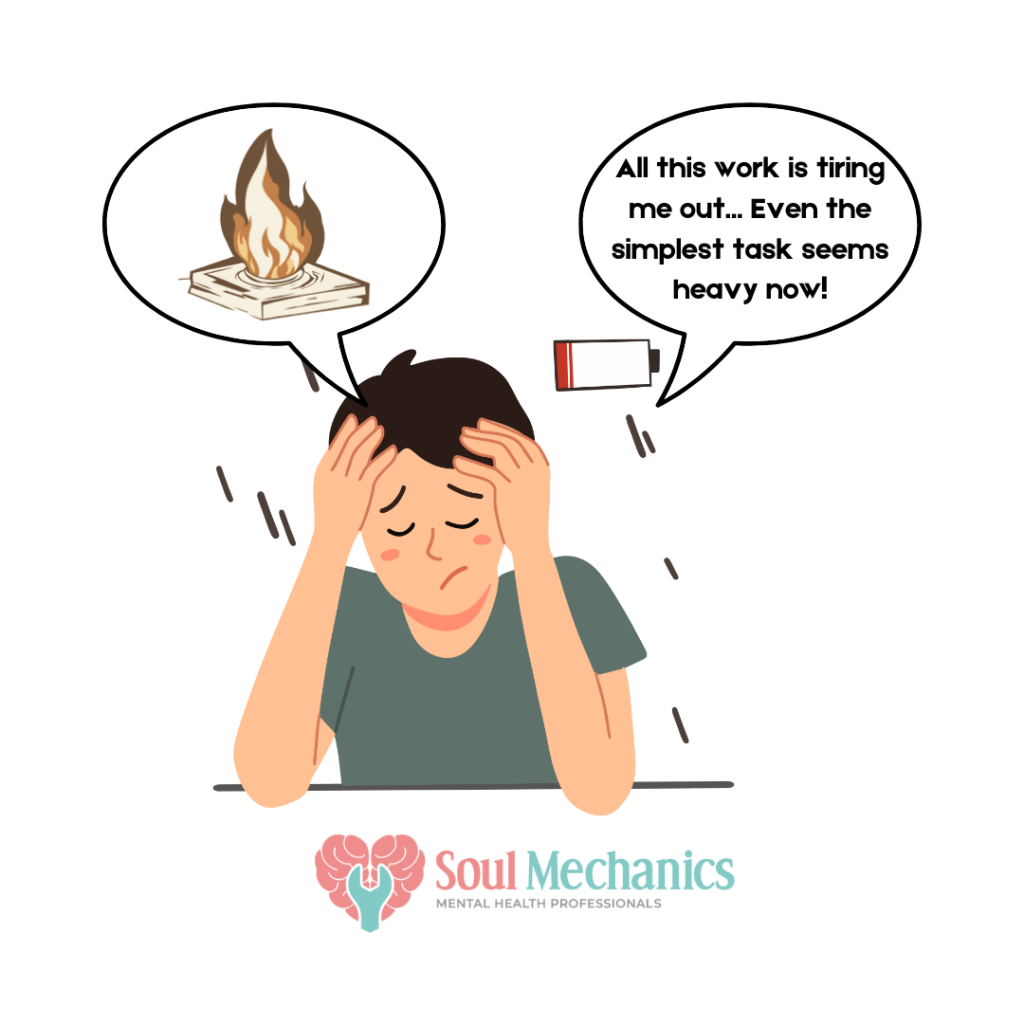
Imagine a flame in your heart—once burning with passion and the desire to push you forward in everything you believed in. However, life’s challenges disrupted this flame, preventing it from soaring brighter. You find yourself swirling within the demands of your workload, facing the same difficulties repeatedly until the source of your ignition—like oxygen and fuel—is swept away by the weight of those challenges. The glory of building your ambition begins to fade, leaving you to wonder if you are no longer as passionate as you once were. You struggle to reignite the flame as the oxygen feels depleted, and the fuel can no longer regenerate.
It might be a sign of burnout if you’ve experienced this state. What does burnout look like? It is a state of emotional, physical, and mental exhaustion caused by excessive and prolonged stress. Burnout can affect anyone, regardless of profession or lifestyle. That’s why it’s vital to recognize the signs of burnout early to prevent it from corroding your mental well-being.
What is Burnout?
Burnout is more than just feeling tired or stressed. It is a chronic state of physical and emotional depletion that can lead to losing interest and motivation in daily activities. It often results from prolonged exposure to stressful situations, such as demanding work environments or personal challenges.
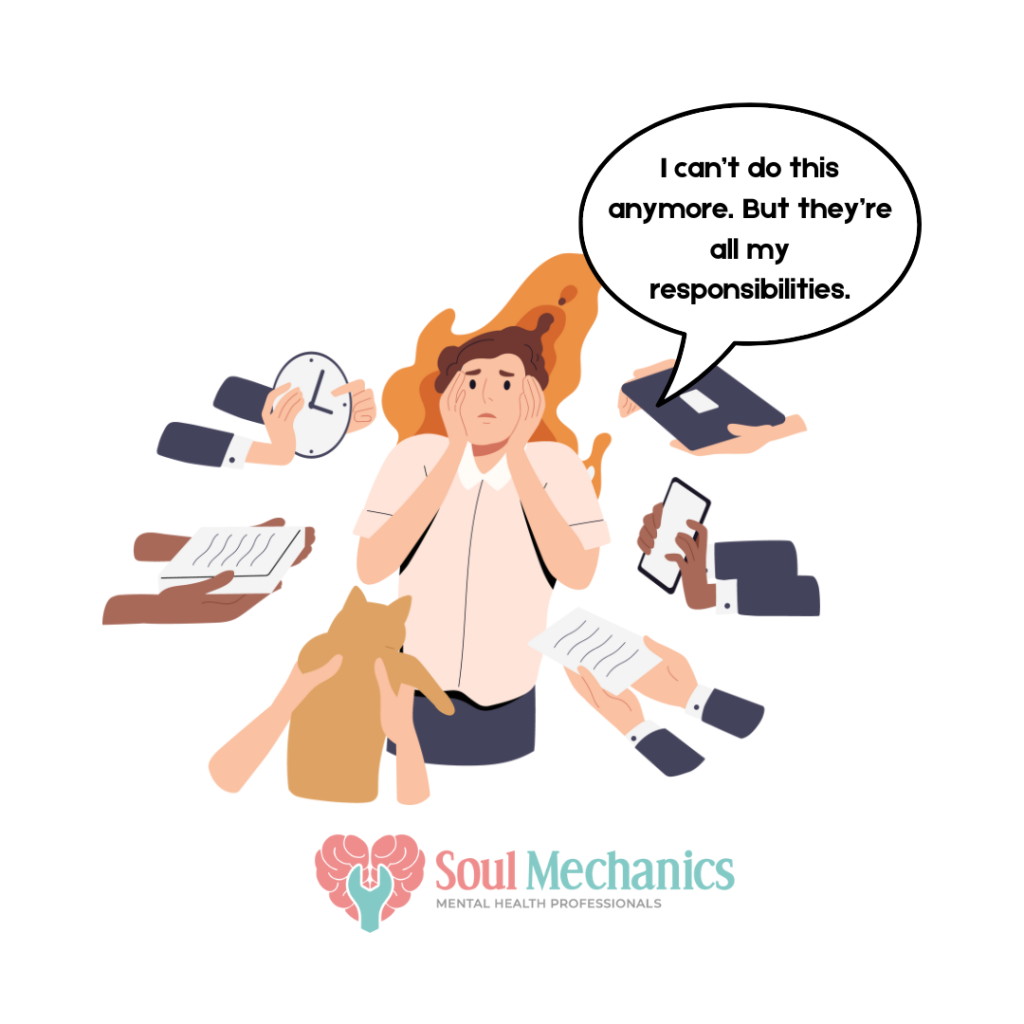
Is it a Burnout or a Laziness?
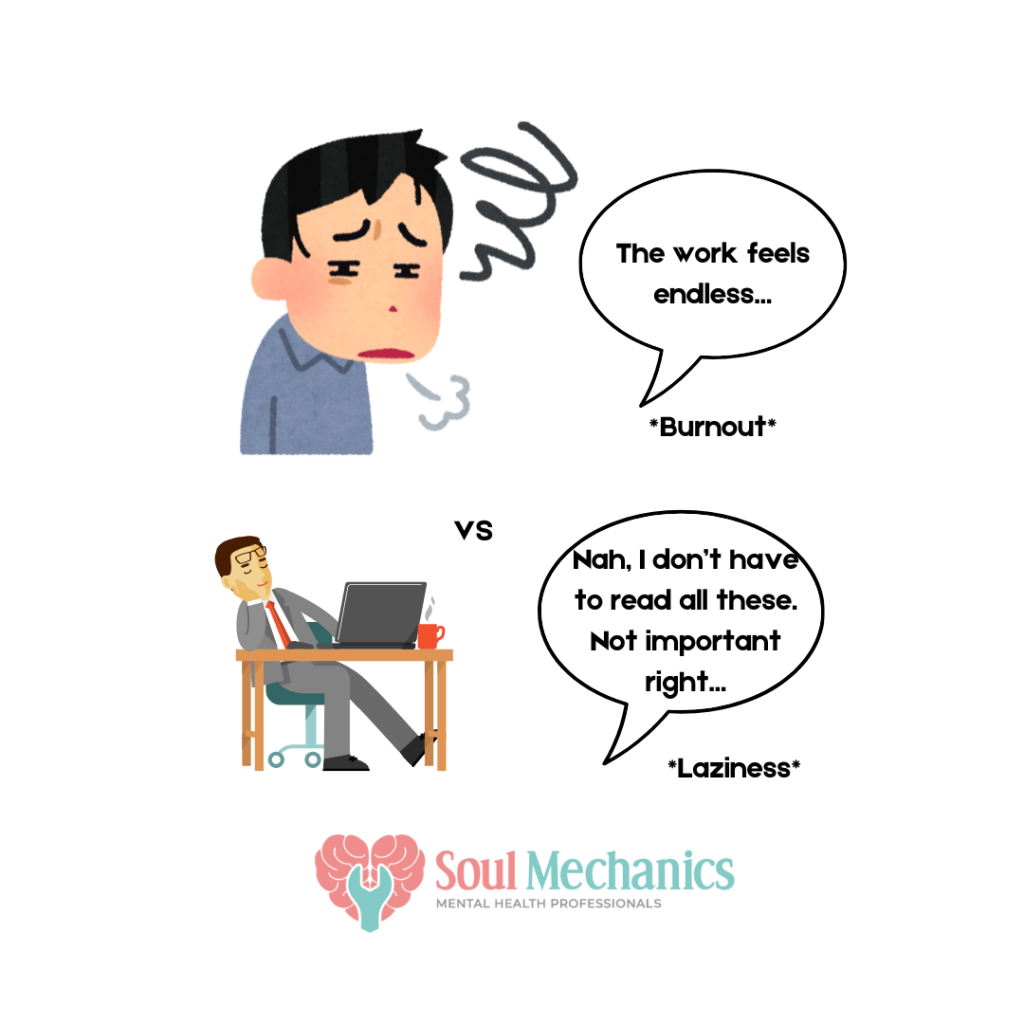
While learning about burnout, you may also feel confused about burnout as a type of laziness. They are two different mental conditions and give different signs. So, it's important to distinguish between burnout and laziness. Burnout is a serious condition that affects your ability to function, while laziness is a lack of willingness to exert effort. People experiencing burnout may appear to be lazy because they struggle to find the energy to complete tasks, but their underlying issue is exhaustion, not a lack of motivation.
What Causes Burnout?
You may wonder, what causes your burnout? The causes can be subtle, and may not be noticeable at first glance. Building your self-awareness around this condition can navigate you around your wave of well-being.
Lack of Work-Life Balance
It becomes more difficult when your work exceeds your working hours. When you have to work overtime to meet deadlines, you have to sacrifice your personal time and take away your space to rest. Lack of rest and a high workload will certainly exhaust you more than ever.
Stress from work
Pressure from work can lead to burnout, such as high workloads, long hours, and unrealistic expectations. You will feel burnout if you struggle to manage your work tasks and your supervisor is not supporting you. When that happens, your burnout will escalate since your workload has overwhelmed you too much.
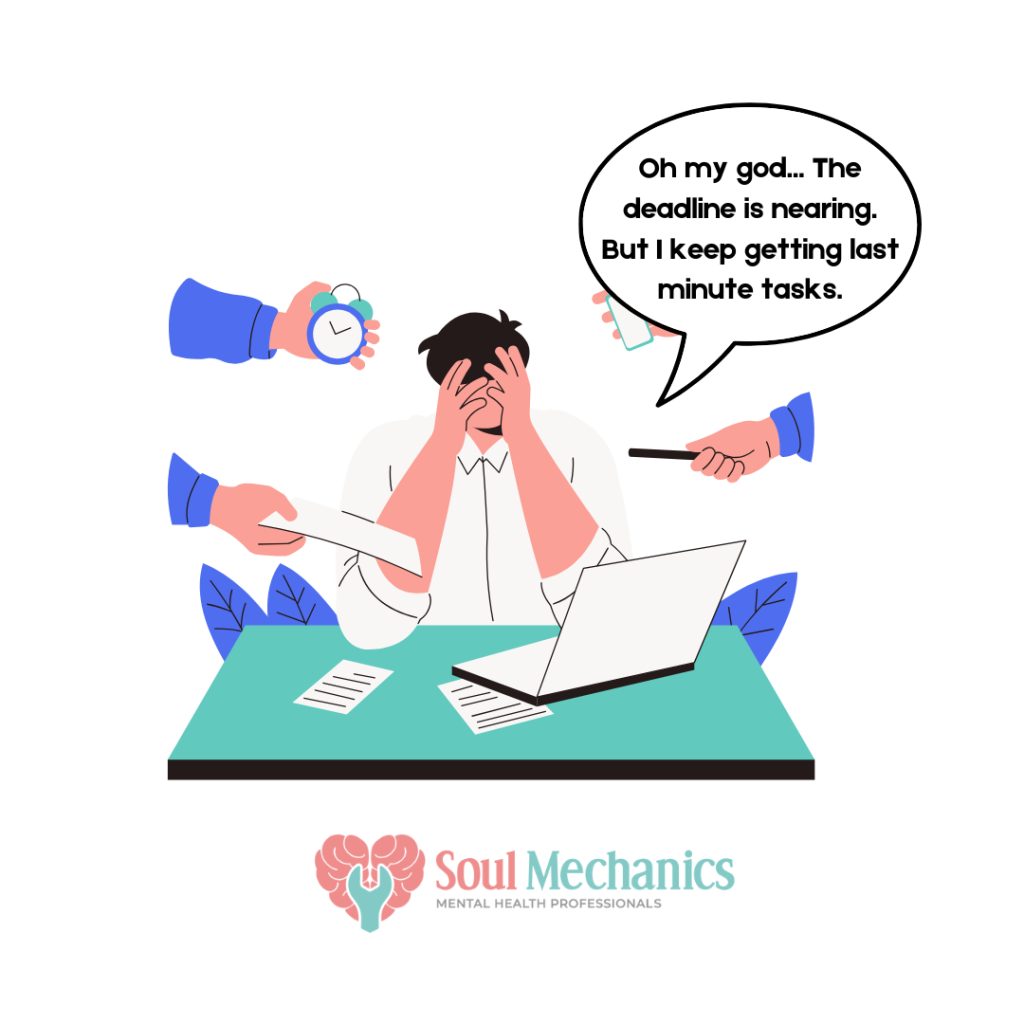
Unclear Job Expectations
Aside from workload, you will get burnout when you feel uncertain about your job roles and responsibilities, leading you to do unrelatable tasks which make you feel uncertain about your goals and visions.
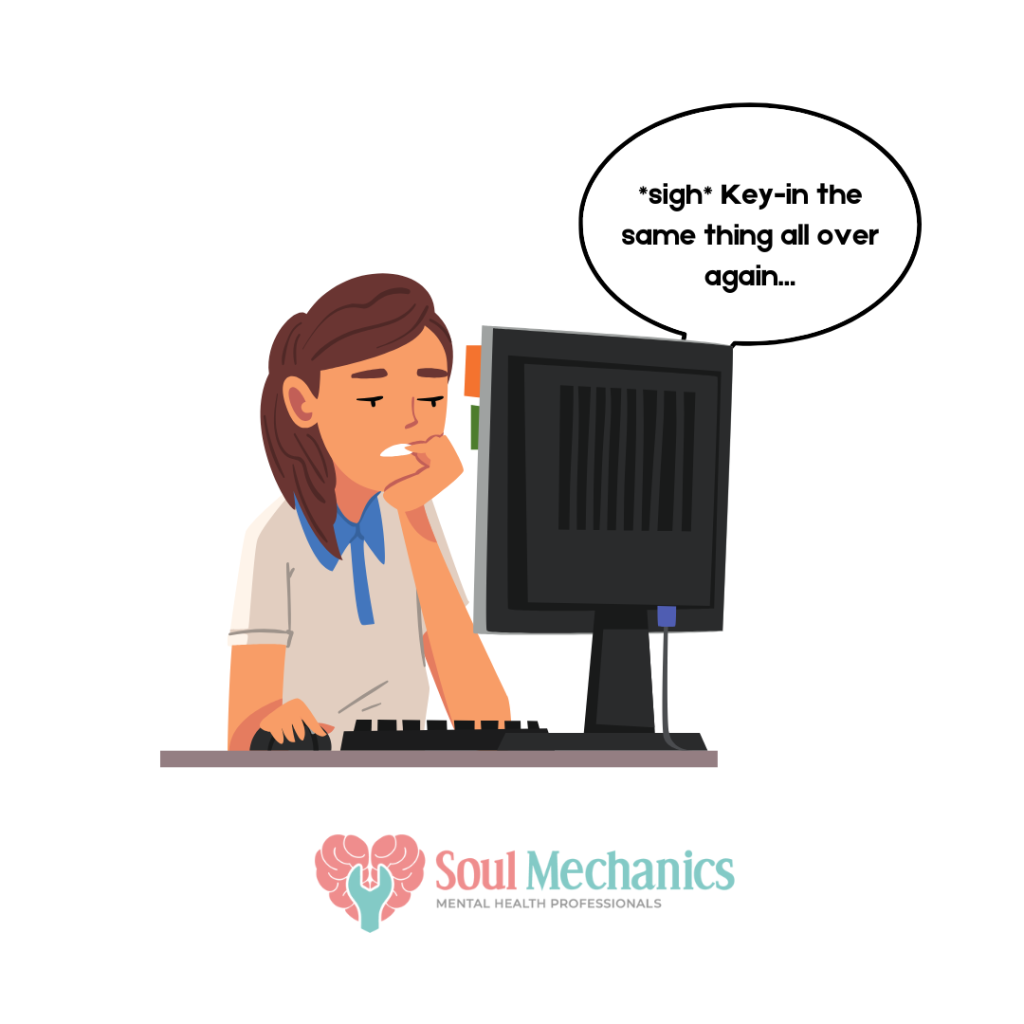
Monotonous or Unchallenging Work
Repetitive tasks that lack variety or challenge can lead you to feel bored, eventually leading towards burnout.
Personal Factors
Sometimes, burnout can be caused by something internal instead of external. Personality traits such as imposter syndrome, perfectionism, pessimism, and a high need for control can make you more susceptible to burnout. Additionally, personal life stressors, such as financial problems or relationship issues, can contribute to burnout. It can be tough when your other struggles collide with the unhealthy work culture.
Lack of Social Support
Feeling isolated or unsupported at work or personal life can increase the risk of burnout. It becomes tough when you have too much on your plate, but you can’t talk about it with your colleague at work or someone close to you. Not only does it become a lonely journey, but it also makes you succumb to your difficulties without having support to rely on.
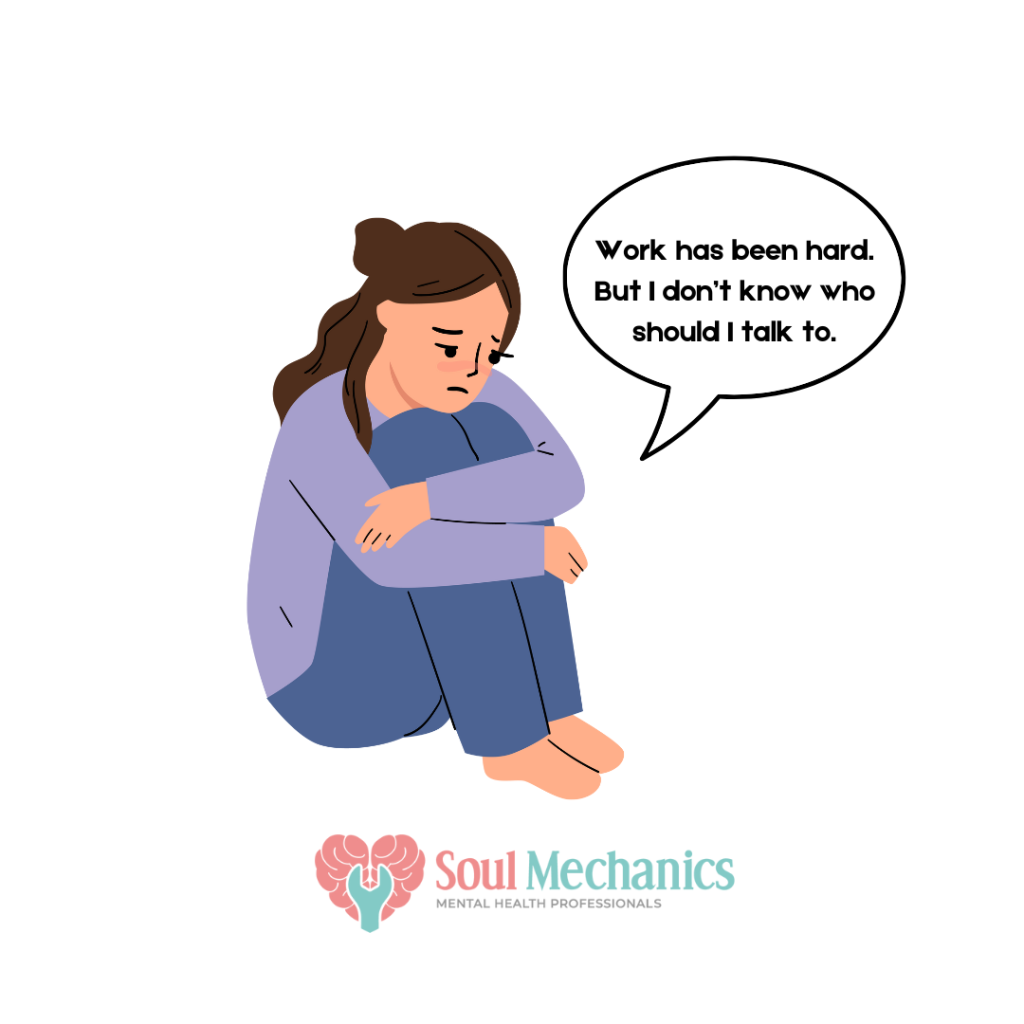
Poor Work Environment
An unhealthy work culture can also cause burnout. It includes unresolved conflicts, bullying, or lack of resources. Working in an unsupportive environment can make your work performance detrimental since you are living in the same environment almost every day.
Signs of Burnout
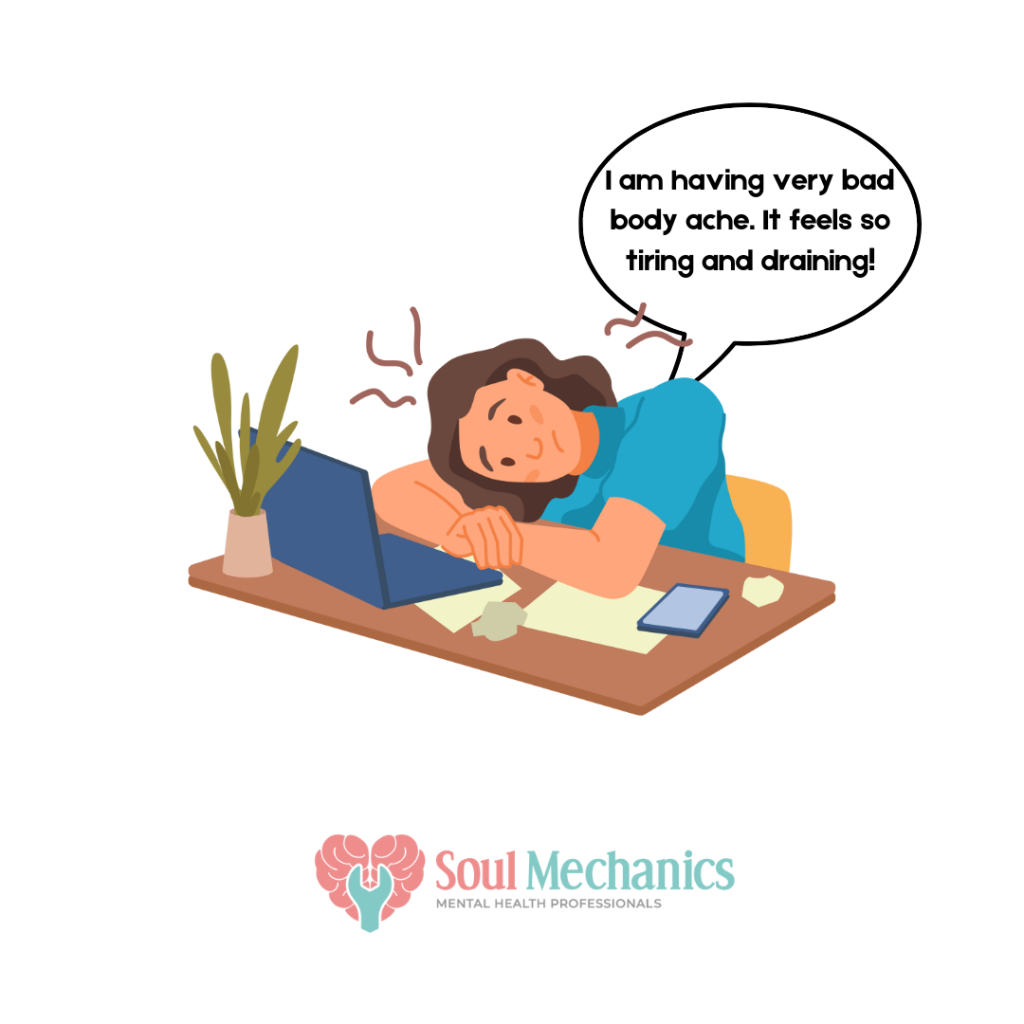
Chronic Fatigue
You can also feel incredibly tired and drained most of the time. Even if you don’t do as many tasks as usual, you feel tired rather quickly than before. You don’t have to deny yourself if you find it difficult to stay fresh, your energy fluctuations are one of the strongest indicators.
Physical Symptoms
Not only does burnout affect you mentally, but it can be said through your physical condition. It includes headaches, muscle pain, and other unexplained physical issues. You might even find yourself falling sick frequently, such as colds or infections due to a weakened immune system.
Insomnia
You experience difficulty falling or staying asleep despite feeling exhausted. You may toss and turn in bed many times but still fail to doze off. Tiredness already piling up, but your brain finds it hard to rest for the day.
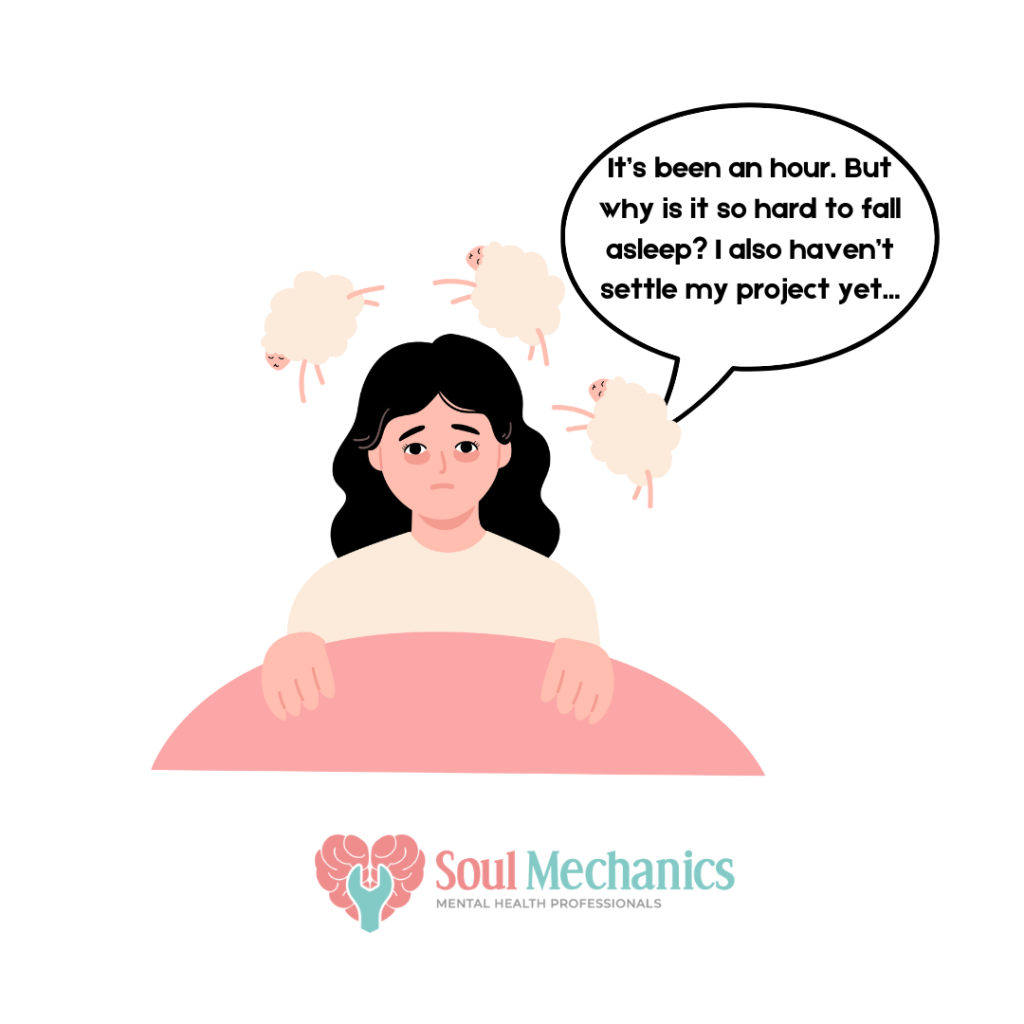
Declining Performance
When burnout happens, your productivity might reduce. It shows up through missing deadlines, struggling to conduct presentations and the list goes on. Your sense of efficacy may also drop. You may feel every task you do now doesn’t give the quality that you hoped, leading you to believe you did not perform well enough.
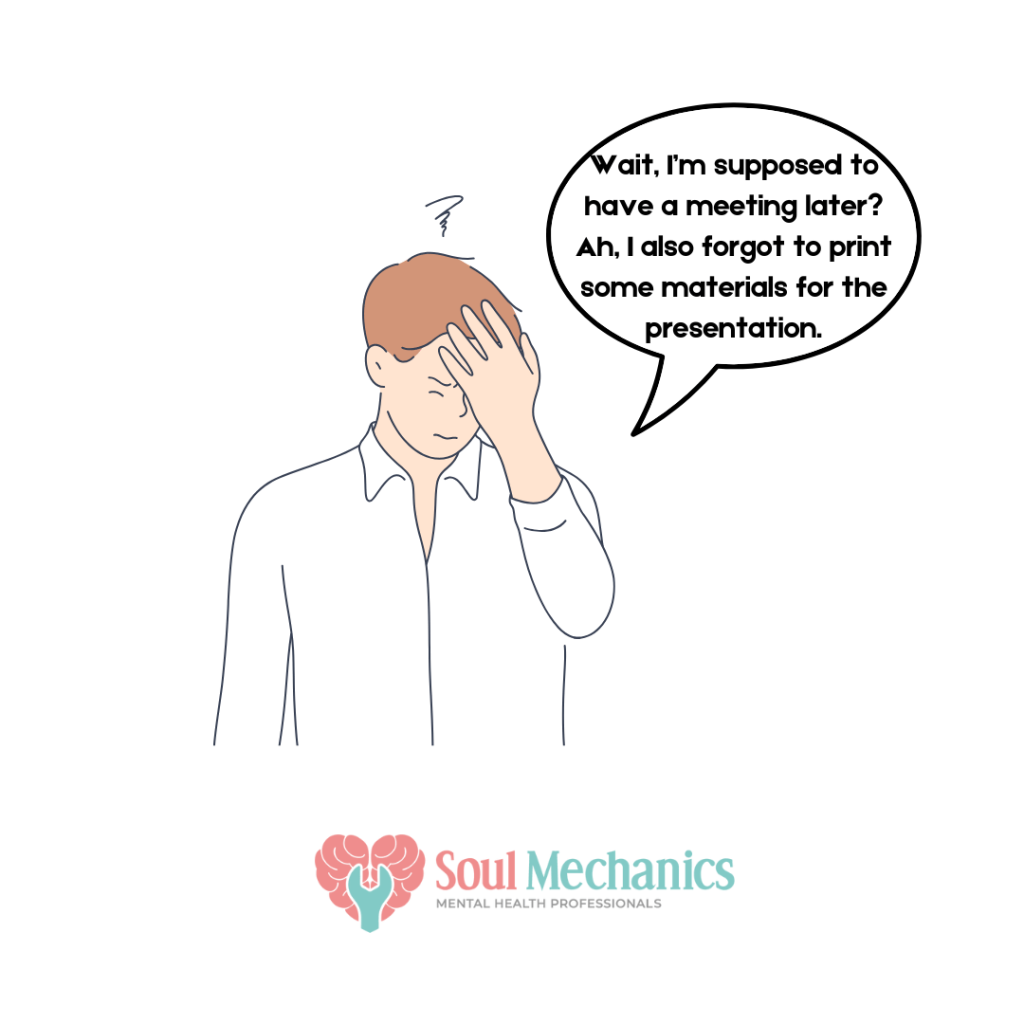
Forgetfulness
Burnout can also cause you to struggle to focus on your work and remembering things. Your mind seems to be blurry and less effective in retaining memories as usual.
Other signs include:
Loss of Appetite: Changes in eating habits, either overeating or loss of appetite.
Isolation: Withdrawing from social interactions and activities.
Irritability: Increased frustration and irritability.
If You Have Burnout, What Should You Do?
Acknowledge the Problem
Recognize your burnout signs and that it could be a serious issue. Understand the symptoms thoroughly. Even if the signs seem minor, they will still impact your work habits, and having the awareness yourself is a great step.
Talk about it with your supervisor
Discuss with them and be honest about your struggles. Communicate clearly with them to define your job role, hence clarifying your lack of motivation. Besides, suggest participating in a meaningful and stimulating tasks to resolve this problem. This helps your superior to understand your internal struggles and offer a helping hand.
Seek Support
Talk to friends, family, or a mental health professional about what you're going through. Voice out the work difficulties you are facing to your supervisor. Strong social connections and support networks are important for managing stress. You don’t have to bear everything alone. Share your vulnerabilities with someone you trust.
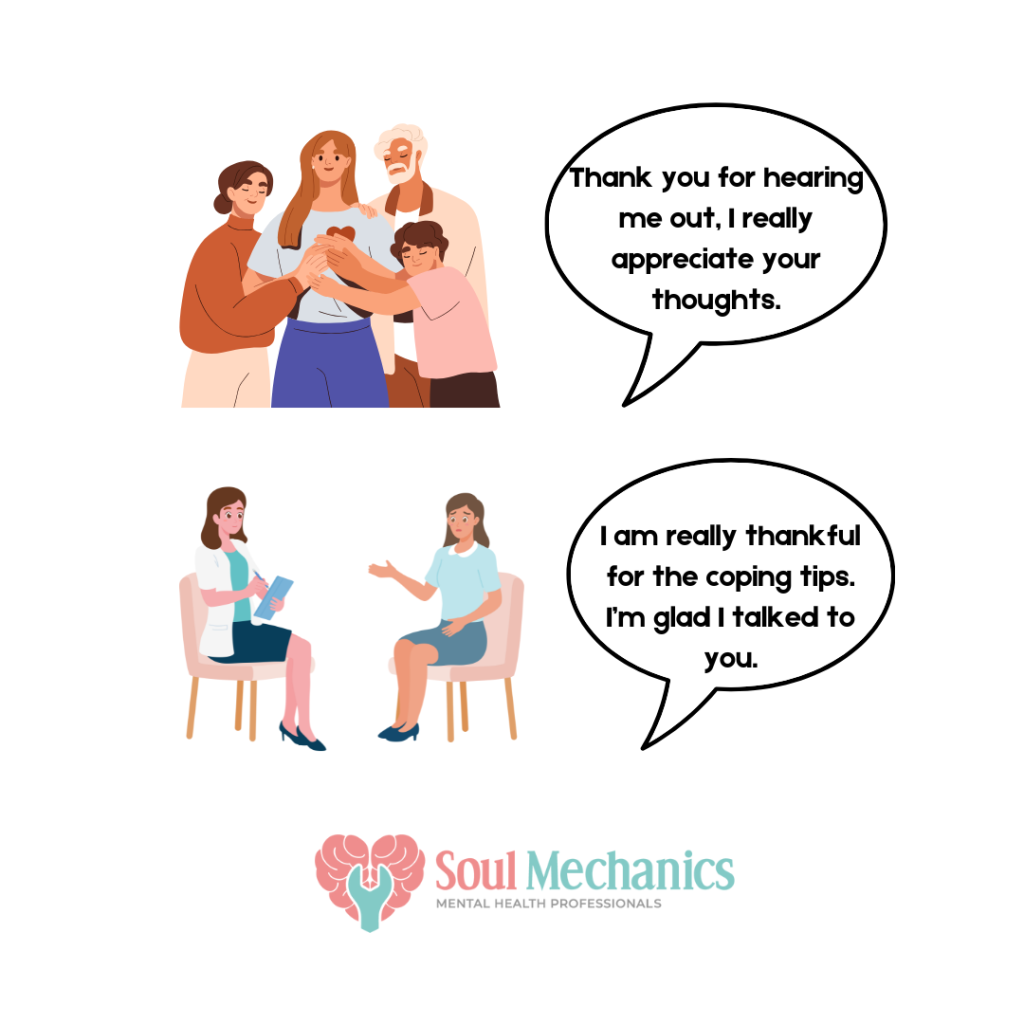
Practice Self-Care
Engage in activities that promote relaxation, such as exercise, hobbies, and meditation.
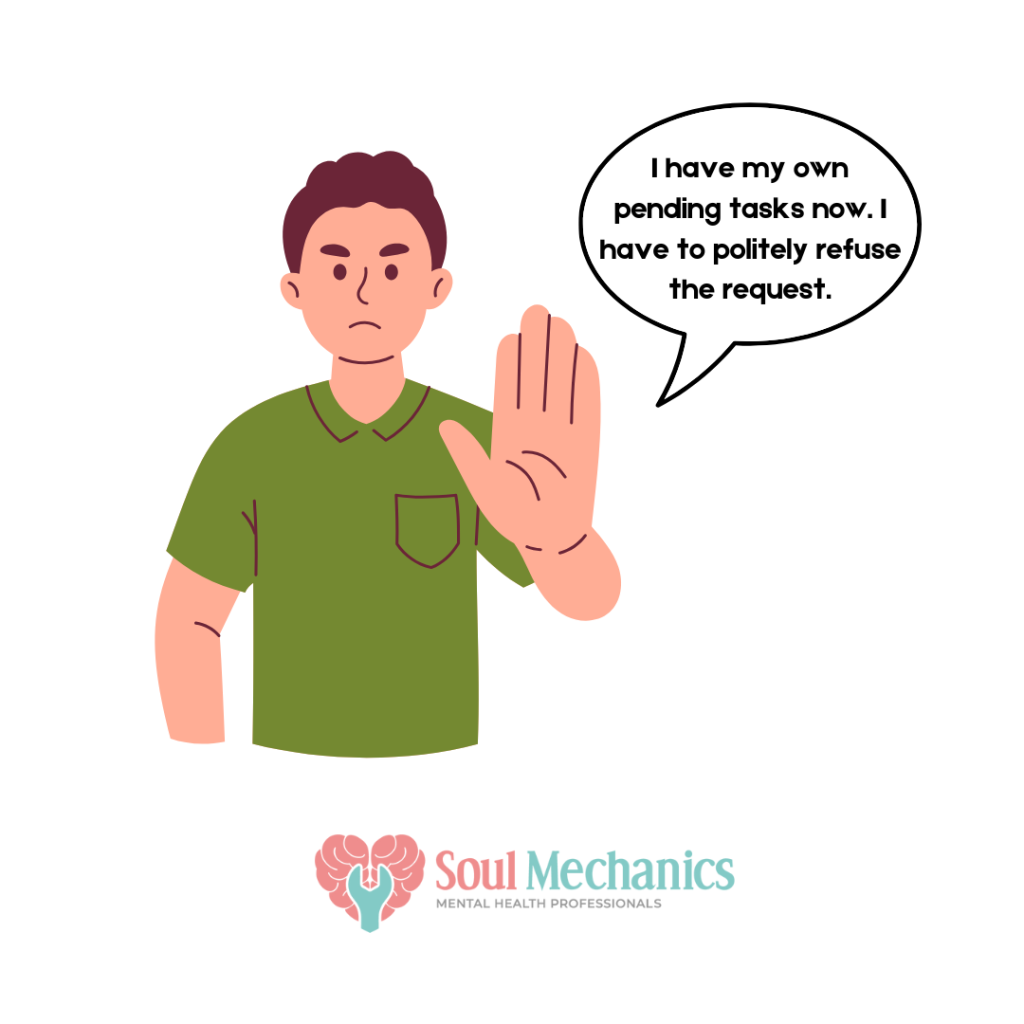
Set Boundaries
Learn to say no and set limits on your workload and responsibilities. It is much more needed if your work environment is taking a toll on you. Building these boundaries can help you secure your personal space without being pushed around by your colleagues.
Reevaluate Priorities
Reflect on your goals and visions to ensure your activities align with what truly matters to you. Identify what you value the most and sort your priorities. It is okay if you choose to focus on the simpler priorities and tasks.
Take Breaks
Whenever you feel tired, you can try to take regular short breaks. It doesn’t necessarily have to empty your mind but clears some mental space. You can also walk around to make a cup of tea while taking a breather. This can give you time to recharge, instead of working non-stop.

Conclusion
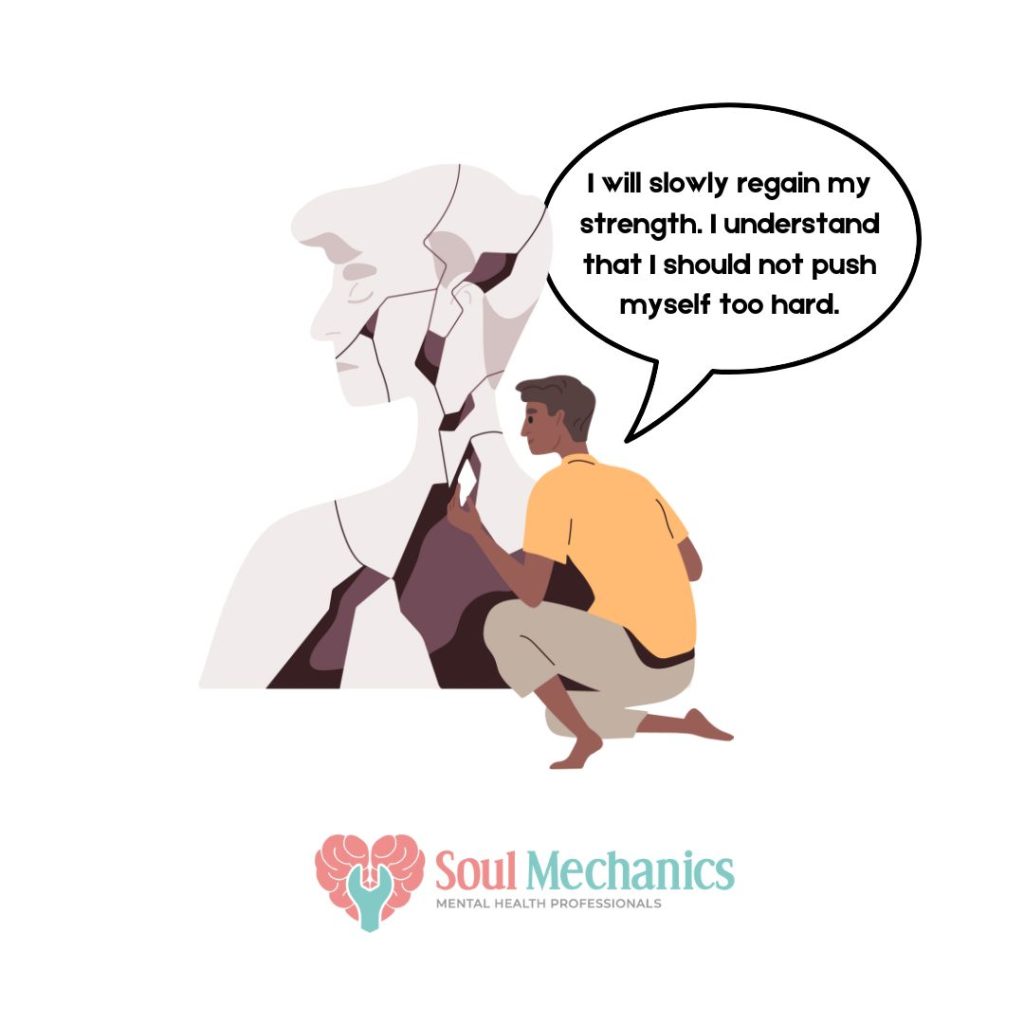
Burnout can happen unconsciously, but the effect is not silent. Burnout can have significant impacts on your health and well-being. By recognizing the signs early and taking proactive steps to address them, you can prevent burnout from taking over your life. Remember, seeking help and making changes to your lifestyle are signs of strength, not weakness. Take care of yourself and prioritize your mental health.
If you’re looking for a therapist in Kota Damansara or Ipoh area, you can click here for more information.
If you enjoyed reading this, why not broaden the horizon of knowledge by learning about "Doomscrolling: What It Is and How to Break the Habit"? You can read the blog here.
For more content related to mental health do follow us on our official Instagram.

